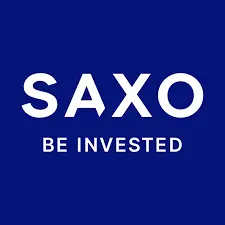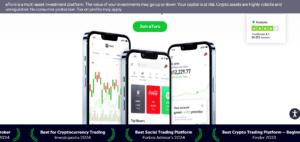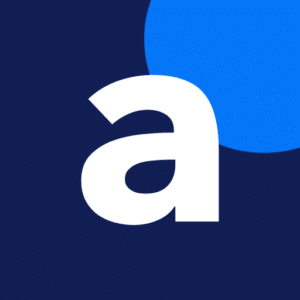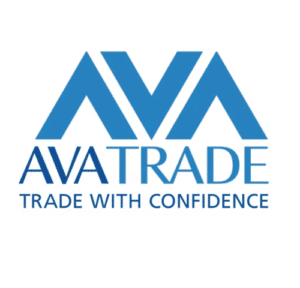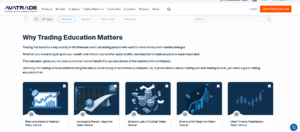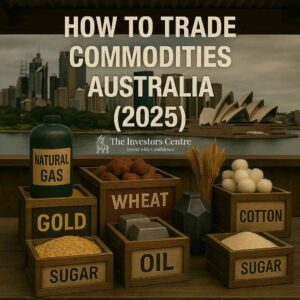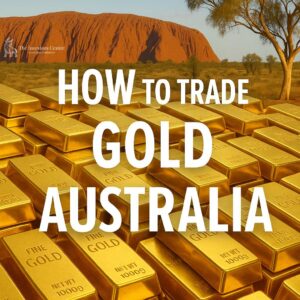7 Best Day Trading Brokers in Australia for 2025
Adam is a passionate investor who created The Investors Centre (TIC) to combine his professional skills with his love for investment. His goal is to offer a platform filled with valuable resources, practical advice, and effective strategies for anyone looking to make their mark in the investment world.
“Investment is about more than just numbers; it’s about strategy, research, and the willingness to adapt. At TIC, we’re here to provide the tools and knowledge you need to succeed on your investment journey.”
Thomas is an experienced financial trader in leverage instruments, crypto and general investing. He has over a decade experience in finance and holds Chartered Status in the financial industry, Thomas’s speciality is trading CFDs, Forex and Day Trading. His crypto portfolio is heavily weighted towards BTC and Eth, but enjoys trading low cap crypto’s with higher volatility. Thomas’s favourite trading strategy is break out Trading.
“Our commitment at The Investors Centre is unwavering. We strive to provide clear, actionable advice that empowers you to achieve financial success. Our vision is a future where anyone can invest confidently and wisely.”
Investment Education at The Investors Centre
We provide clear, research-based insights to help readers understand investment strategies and market trends.
How We Work
- Research: We gather data from reliable financial sources.
- Analysis: Our team evaluates trends and scenarios using analytical tools.
- Content Creation: Insights are translated into simple, educational content.
- Updates: Information is regularly reviewed for accuracy and relevance.
Disclaimer
Content is for educational purposes only and not financial advice. Please consult a professional before making investment decisions.
Terms
We do not guarantee the accuracy or completeness of our content. See our terms of service for details.
Content on this website is for educational purposes only and not professional financial advice. Always consult a qualified advisor before making financial decisions.
Liability
We do our best to keep information accurate and up to date, but we make no guarantees. Use of this site and reliance on its content is at your own risk. We are not liable for any losses or damages resulting from its use.
No Professional Advice
We do not provide investment, legal, or tax advice. Nothing on this site should be considered as such.
Third-Party Links
External links are provided for convenience. We are not responsible for the content or reliability of third-party sites and do not necessarily endorse them.
Terms of Use
By using this website, you agree to this disclaimer and our terms. Content is protected by intellectual property laws and may not be used without permission.
Updates
This disclaimer may change. Continued use of the site indicates acceptance of any updates.
Contact
Questions? Email us at info@theinvestorscentre.com
Table of Contents
Disclaimer
How We Test
Discover the top day trading brokers in Australia, expertly reviewed for 2025. Choose ASIC-regulated platforms with low fees, advanced tools, and features tailored for traders of all levels.

eToro
AUS Day Trading Score: 4.65/5
51% of retail CFD accounts lose money.

CMC Markets
AUS Day Trading Score: 4.6/5
70% of retail CFD accounts lose money.

Pepperstone
AUS Day Trading Score: 4.5/5
81.7% of retail CFD accounts lose money.

Admirals
AUS Day Trading Score: 4.5/5
61% of retail CFD accounts lose money.
Quick Answer: What Is the Best Broker for Day Trading in Australia?
eToro is the top platform for Australian day traders. Its social trading feature allows users to copy experienced traders, while low fees and a demo account make it ideal for beginners. Advanced traders may find its tools slightly limited.
Featured App - eToro
A global leader in social investing, eToro empowers millions of users to trade and invest in a wide range of assets with ease. Known for its user-friendly platform, innovative copy trading features, and strong regulatory framework, eToro continues to redefine how individuals access financial markets.
- Minimum Deposit: £0 (via bank transfer in the UK)
-
- Market Spread:
- From 0.1% (UK Stock CFDs)
- From 1.0 pip (Major Forex pairs)
- Market Spread:
-
FCA Regulated (FRN 583263)
-
TradingView Integration Available
-
Innovative CopyTrader™ System
- Access to 25 major stock indices, 900+ share CFDs, 62 forex pairs, 17 commodities, and 100+ ETFs — all in CFD form
Comparison of Forex Brokers in Australia
| Rank | Broker Name | Regulation | Spreads From | Commission per Lot | AUD Pairs Available | Platform Features |
|---|---|---|---|---|---|---|
| #1 | eToro | ASIC, CySEC | 1 pip | None | Moderate | User-friendly interface, social trading, demo accounts |
| #2 | CMC Markets | ASIC, IIROC | 0.7 pips | None | Extensive | Advanced tools, user-friendly interface |
| #3 | Pepperstone | ASIC, FCA | 0.6 pips | $3.50 | Wide range | MT4/MT5, cTrader, low-latency execution |
| #4 | Admirals | ASIC | 0.5 pips | Varies by account | Comprehensive | Global market access, robust analytics |
| #5 | AvaTrade | ASIC, IIROC | 1.3 pips | None | Limited | Automated trading, AvaProtect risk tool |
| #6 | Interactive Brokers | ASIC, FINRA | 0.2 pips | Low-volume based | Global markets | Advanced trading tools, API integrations, global scanners |
| #7 | Saxo | ASIC, FCA | 0.6 pips | $6.00 | Premium range | Premium features, advanced analytics, custom dashboards |
Here Are the Top 7 Best Day Trading Brokers in Australia:
- eToro – Best for user-friendly interface and social trading.
- CMC Markets – Excellent for a wide range of trading assets.
- Pepperstone – Offers fast execution and advanced forex tools.
- Admirals – Comprehensive platform with global market access.
- AvaTrade – Great for beginners and automated trading options.
- Interactive Brokers – Ideal for professional traders needing advanced tools.
- Saxo – Premium features for serious investors and global asset access.
Choosing the right platform is crucial for your success as a trader. I’ve tested numerous platforms over the years, and the ones that made this list excel in fees, usability, and trading tools.
Whether you’re just starting out or a seasoned trader looking for advanced features, there’s something here for everyone. From intuitive platforms like eToro to professional-grade tools offered by Interactive Brokers, these platforms cater to a variety of needs.
What Do Our Experts Say?
eToro is the top choice for Australian day traders, thanks to its ease of use and innovative features. With a demo account and social trading tools, it’s ideal for beginners exploring the world of day trading.
Pros & Cons
- Easy-to-navigate interface
- Low fees
- Demo accounts for practice
- Limited advanced charting tools
- High withdrawal fees for non-USD transactions
-
What are the Fees?
-
What Trading Tools Are Available?
-
How Safe Is the Platform?
eToro charges no commission on stocks but applies a 0.5% currency conversion fee for non-USD deposits. Spreads start at 1 pip for forex trades, making it competitive for most Australian traders.
Key features include CopyTrader, where you can replicate the strategies of successful traders, customisable charts, and access to a broad range of assets like crypto, forex, and stocks.
eToro is regulated by the Australian Securities and Investments Commission (ASIC), ensuring compliance with strict local financial standards. Client funds are held in segregated accounts at top-tier banks, and the platform uses SSL encryption and two-factor authentication (2FA) to protect user data and accounts.
CFDs are complex instruments with a high risk of losing money rapidly due to leverage. 51% of retail CFD accounts lose money when trading CFD’s with this provider. You should consider whether you understand how CFDs work and whether you can afford to take the high risk of losing your money.
What Do Our Experts Say?
CMC Markets offers one of the most extensive ranges of tradable assets in Australia, including shares, forex, commodities, and ETFs. Its platform is highly reliable and packed with analysis tools for serious traders.
Pros & Cons
- Extensive asset range
- Advanced market analysis tools
- Excellent customer support
- Higher fees for forex
- Complex interface for beginners
-
What are the Fees?
-
What Trading Tools Are Available?
-
How Safe Is the Platform?
CMC Markets charges competitive spreads, but forex fees can be on the higher side compared to other platforms. The absence of fixed commissions on CFDs is a plus.
Its Next Generation platform offers advanced charting, over 80 technical indicators, and market insights, making it a favourite among experienced traders.
CMC Markets is one of the most established brokers globally and is licensed by ASIC in Australia. It maintains segregated client funds, adheres to stringent capital requirements, and offers robust account protection measures, including encryption and 2FA for secure access.
CFDs are complex instruments with a high risk of losing money rapidly due to leverage. 70% of retail CFD accounts lose money when trading CFD’s with this provider. You should consider whether you understand how CFDs work and whether you can afford to take the high risk of losing your money.
What Do Our Experts Say?
Pepperstone excels in providing lightning-fast execution and advanced tools for forex trading, making it a favourite among Australian traders. Its focus on low-latency execution ensures trades are processed quickly during high volatility.
Pros & Cons
- Fast execution speed
- Wide range of trading platforms
- Tight spreads
- Limited in-platform educational resources
- No proprietary platform
-
What are the Fees?
-
What Trading Tools Are Available?
-
How Safe Is the Platform?
CMC Markets charges competitive spreads, but forex fees can be on the higher side compared to other platforms. The absence of fixed commissions on CFDs is a plus.
Its Next Generation platform offers advanced charting, over 80 technical indicators, and market insights, making it a favourite among experienced traders.
Pepperstone is headquartered in Australia and operates under the oversight of ASIC, providing high standards of client fund protection. The broker holds funds in segregated trust accounts and enforces strict security protocols, including two-step verification and encryption to safeguard client data.
CFDs are complex instruments with a high risk of losing money rapidly due to leverage. 81.7% of retail CFD accounts lose money when trading CFD’s with this provider. You should consider whether you understand how CFDs work and whether you can afford to take the high risk of losing your money.
What Do Our Experts Say?
Admirals, formerly Admiral Markets, is a versatile platform offering global market access. Its wide range of tradable assets and robust tools make it a reliable option for intermediate and advanced traders in Australia.
Pros & Cons
- Low spreads
- Wide variety of educational content
- Access to global markets
- Less beginner-friendly interface
- Inactivity fees after two years
-
What are the Fees?
-
What Trading Tools Are Available?
-
How Safe Is the Platform?
Admirals offers tight spreads starting at 0.5 pips and charges commissions depending on the account type. A $10 inactivity fee applies after 24 months of no trading activity.
Admirals provides access to MetaTrader 4/5, allowing custom indicators, expert advisors, and advanced charting. Their educational resources and webinars are excellent for honing trading skills.
Admirals (formerly Admiral Markets) is regulated by multiple authorities, including ASIC in Australia. Client funds are kept in segregated bank accounts with top-tier institutions, and the platform features SSL encryption and two-factor authentication to ensure secure trading environments.
CFDs are complex instruments with a high risk of losing money rapidly due to leverage. 61% of retail CFD accounts lose money when trading CFD’s with this provider. You should consider whether you understand how CFDs work and whether you can afford to take the high risk of losing your money.
What Do Our Experts Say?
AvaTrade is beginner-friendly and offers robust automated trading options. Its AvaProtect feature is unique, allowing traders to hedge against potential losses for a fixed fee.
Pros & Cons
- Simple and intuitive platform
- Excellent copy and automated trading options
- Strong customer support
- Inactivity fees
- Limited variety of assets compared to competitors
-
What are the Fees?
-
What Trading Tools Are Available?
-
How Safe Is the Platform?
AvaTrade features low spreads on forex pairs and no commissions. However, inactivity fees apply after three months of no trading activity.
AvaTrade offers AvaSocial for copy trading and AvaProtect for risk management. MetaTrader 4/5 integration ensures access to standard tools and strategies, while the platform also supports mobile trading through its intuitive app.
AvaTrade is regulated by the Australian Securities and Investments Commission (ASIC) for its Australian operations. It secures client funds in segregated accounts and implements high-grade encryption and two-factor authentication (2FA) to protect users’ financial and personal data.
CFDs are complex instruments with a high risk of losing money rapidly due to leverage. 76% of retail CFD accounts lose money when trading CFD’s with this provider. You should consider whether you understand how CFDs work and whether you can afford to take the high risk of losing your money.
What Do Our Experts Say?
Interactive Brokers is a platform tailored to professional traders. Its advanced tools and global reach make it a go-to choice for serious day traders in Australia.
Pros & Cons
- Access to global markets
- Advanced trading tools and analytics
- Low-cost forex trading for high-volume traders
- Complex and less beginner-friendly interface
- High inactivity fees for low-volume users
-
What are the Fees?
-
What Trading Tools Are Available?
-
How Safe Is the Platform?
Interactive Brokers uses a volume-based fee structure, which can result in very low trading costs for active traders. Inactivity fees apply for accounts not meeting minimum trading requirements.
The Trader Workstation (TWS) platform is packed with advanced features like risk management, API integrations, and global market scanners. However, the interface is geared toward seasoned traders, which can make it intimidating for beginners.
Interactive Brokers operates in Australia under regulation by ASIC, providing strong regulatory oversight. It is renowned for its financial strength, segregated client accounts, and high-level security measures including two-factor authentication and biometric login options.
CFDs are complex instruments with a high risk of losing money rapidly due to leverage. 62.5% of retail CFD accounts lose money when trading CFD’s with this provider. You should consider whether you understand how CFDs work and whether you can afford to take the high risk of losing your money.
What Do Our Experts Say?
Saxo is known for its premium trading experience, providing advanced tools and access to over 40,000 instruments. It’s ideal for investors seeking a high-end platform with global market access.
Pros & Cons
- Extensive range of tradable assets
- Advanced charting and analytics
- Dedicated account managers for premium users
- High fees and minimum deposit requirements
- Not suited for casual traders
-
What are the Fees?
-
What Trading Tools Are Available?
-
How Safe Is the Platform?
Saxo has a tiered pricing structure, with higher fees for entry-level accounts. Commissions start at $6 per trade, and premium accounts offer lower fees with higher minimum deposits.
Saxo provides access to the SaxoTraderGO and SaxoTraderPRO platforms, offering advanced analytics, risk management tools, and customisable dashboards. These tools are designed for experienced traders and investors.
Saxo is regulated by ASIC in Australia and adheres to rigorous financial safeguards, including maintaining segregated client funds. The platform employs advanced encryption technologies and two-factor authentication to protect client data and ensure secure trading operations.
CFDs are complex instruments with a high risk of losing money rapidly due to leverage. 64% of retail CFD accounts lose money when trading CFD’s with this provider. You should consider whether you understand how CFDs work and whether you can afford to take the high risk of losing your money.
2025 Outlook: What Does the Future Hold for Day Trading in Australia?
Day trading in Australia is poised for exciting growth in 2025. Mobile trading apps are becoming increasingly sophisticated, providing tools that were once exclusive to desktop platforms. This makes it easier than ever for traders to monitor markets and execute trades on the go.
ASIC’s regulatory oversight continues to ensure safe and transparent trading environments, particularly with the rise of retail traders. For Australians, this means more confidence when navigating volatile markets, whether in forex, crypto, or traditional stocks.
Cryptocurrencies and forex trading are expected to dominate, as traders seek high-volatility assets with the potential for substantial returns. According to Statista, the Australian dollar remains a popular forex choice, with a daily turnover of $119.15 billion in 2019. This reflects the growing appetite for forex trading among Australian traders (statista.com).
Additionally, platforms are beginning to integrate advanced risk management tools, ensuring that traders are better prepared for market volatility. I personally look forward to the increasing customisation of these platforms to suit traders’ specific needs.
A Practical Guide to Starting Day Trading in Australia
How Can You Grasp Market Trends and Volatility?
Which Strategies Should Beginners Focus On?
Start with simpler strategies, like trend-following or breakout trading. When I began, I stuck to trend-following as it aligned with observable market movements. Avoid overcomplicating things—focus on learning one strategy thoroughly before diversifying.
How Do You Use Analytical Tools for Decision-Making?
Analytical tools such as technical indicators and candlestick charts are crucial. I use tools from platforms like eToro to identify entry and exit points. Remember, practice makes perfect—demo accounts are great for mastering these tools.
What Criteria Should You Use to Select a Trading Platform?
Choose a platform based on fees, usability, and tools. When I was starting out, I valued simplicity over technical complexity. Platforms like AvaTrade offered a straightforward interface that didn’t overwhelm me.
What Rules Do Successful Traders Follow?
Stick to a trading plan and avoid emotional decision-making. Early on, I learned that consistency matters more than chasing quick wins. Risk management, such as setting stop-loss orders, helped me mitigate losses and preserve capital.
Key Australian Markets for Day Trading Opportunities
Why Is the ASX Central to Stock Day Trading in Australia?
The ASX offers a diverse range of stocks, making it ideal for day trading. Australian stocks often follow predictable patterns due to sectoral focus, such as mining and banking, giving traders opportunities to capitalise on daily market movements.
What Makes Forex Trading Profitable for Australians?
The forex market’s high liquidity and volatility create ideal conditions for day traders. I’ve seen success trading AUD/USD pairs, particularly during overlap hours with European markets, which offer increased activity and tighter spreads.
How Can You Leverage Commodities and Futures in Australia?
Commodities like gold and oil are closely tied to global markets, presenting high volatility and trading opportunities.
Click here for more on trading Gold
Futures contracts, available on platforms like Interactive Brokers, allow traders to speculate on price movements with precision.
Comparison of Key Australian Day Trading Markets
| Market | Opportunities | Volatility | Best Strategies |
|---|---|---|---|
| ASX Stocks | Diverse sectors like mining and banking | Moderate | Trend trading, news-based trades |
| Forex | AUD/USD pairs with high liquidity | High | Swing trading, breakout trading |
| Commodities | Gold and oil with global market influence | High | Momentum trading, futures trading |
Methods Most Often Used for Day Trading
How Can Breaking News Influence Your Trades?
News events can cause significant price swings. Monitor global and local financial news to react quickly. Platforms like eToro provide alerts on key events, helping traders take advantage of sudden opportunities.
What Is the Role of Swing Trading in Market Timing?
Swing trading helps you capture medium-term trends over several days. I’ve often used this strategy to hold positions overnight, especially when anticipating price continuation based on market momentum.
How Can Trend Trading Help You Capitalise on Momentum?
Trend trading focuses on identifying and riding market trends. This strategy works well for assets like forex and commodities, which often exhibit strong upward or downward movements over short periods.
Why Should Money Flow Analysis Be Part of Your Toolkit?
Money flow analysis tracks buying and selling pressure in the market. I rely on indicators like the Money Flow Index (MFI) to spot reversals and identify high-volume trading zones.
Summary of Day Trading Strategies
| Strategy | Focus | Difficulty | Typical Outcome |
|---|---|---|---|
| Breaking News | Reacting to news events | Medium | Quick profits from price swings |
| Swing Trading | Holding positions overnight | Easy | Moderate gains over a few days |
| Trend Trading | Riding market trends | Easy | Consistent profits in strong trends |
| Money Flow Analysis | Tracking buying/selling pressure | Medium | Spotting high-volume reversals |
FAQs
What should I consider before investing in the stock market?
Know your goals, risk tolerance, and time horizon. Research companies, market trends, and economic conditions. Diversify your portfolio and consider factors such as fees, taxes, and transaction costs.
How do platform fees affect my returns?
Annual fees, typically a percentage of your assets, can eat into your returns over time. Compare fee structures—some platforms are cheaper for passive investors, others cost more for managed portfolios.
What are the benefits of opening an investment account, and how do I get started?
An investment account gives you access to a variety of financial instruments, including stocks, bonds, ETFs, and mutual funds. It allows you to build a diversified portfolio based on your financial objectives and risk appetite. To get started:
- Research reputable brokerage firms or investment platforms.
- Compare account types (e.g., general investment accounts, ISAs, or pensions).
- Complete the account opening process, which may include identity verification.
- Fund your account and start investing based on your chosen strategy.
What can I trade when I open an investment account?
An investment account gives you access to stocks, ETFs, bonds, and more.
Are retail investor accounts beginner-friendly?
Yes. They often include pre-built portfolios, educational content, robo-advisors, and low minimum deposits—perfect for new investors.
How can I keep my investments safe on trading apps?
Use FCA-regulated platforms with strong security (e.g. encryption, 2FA). Check user reviews, data policies, and app reliability. Look for good customer support and fraud protection.





